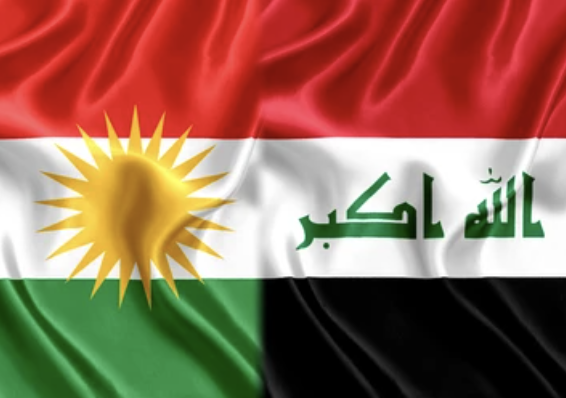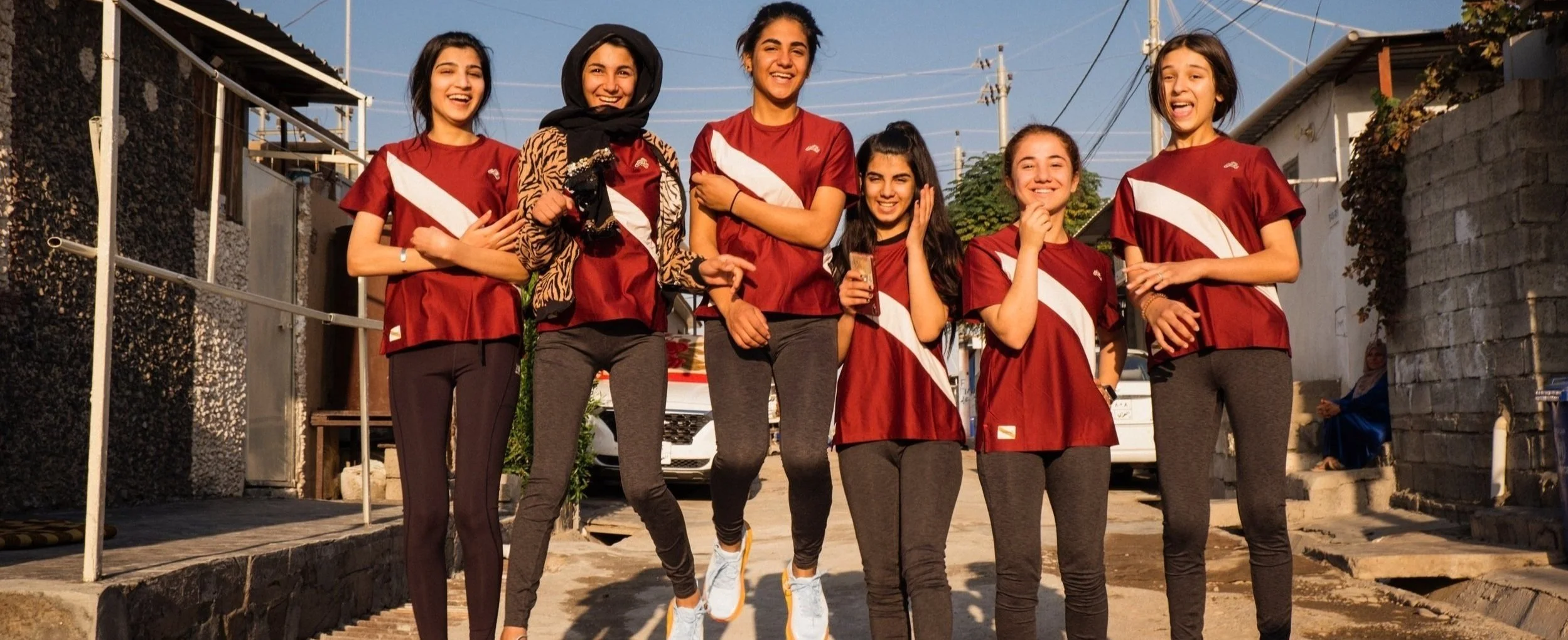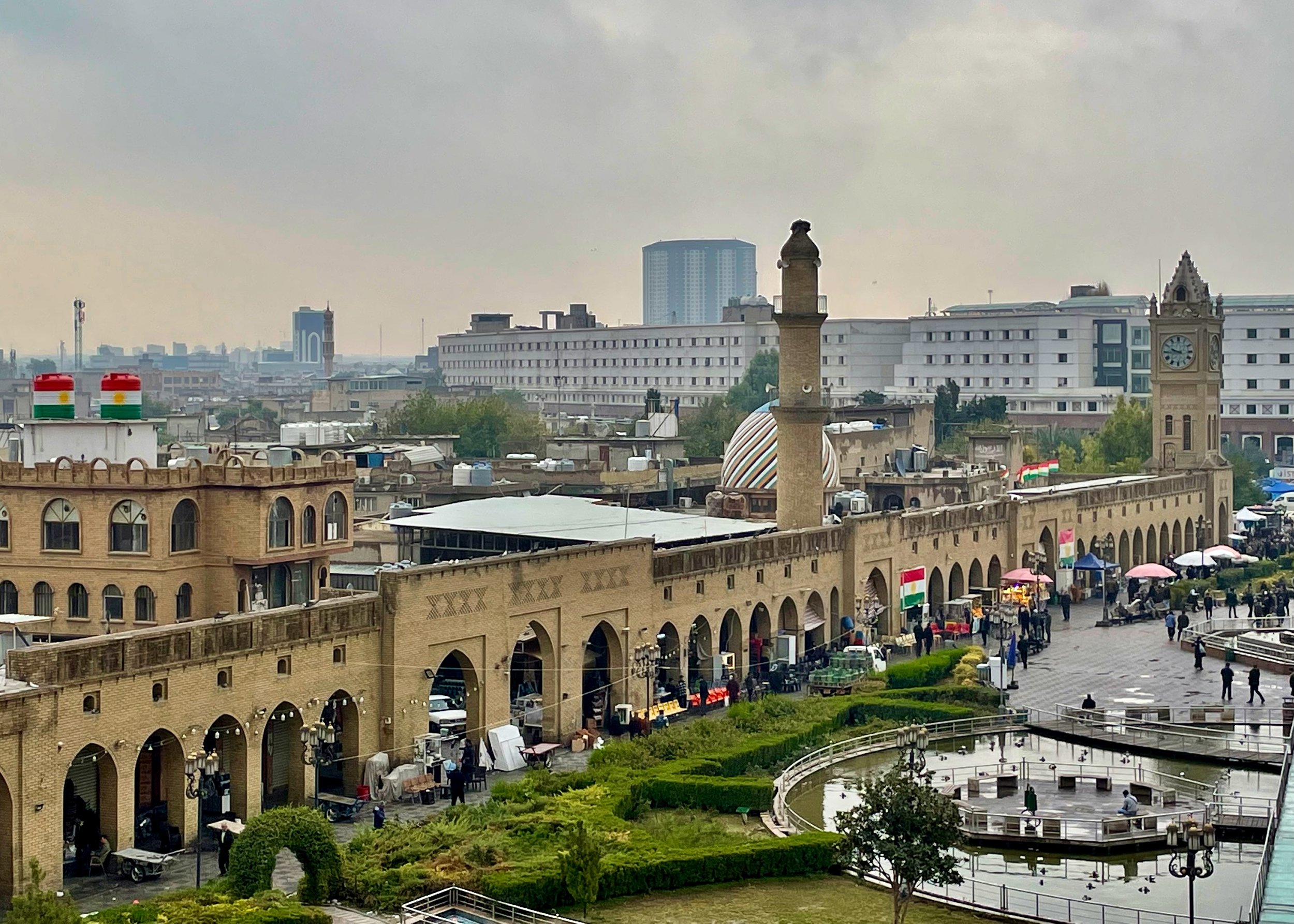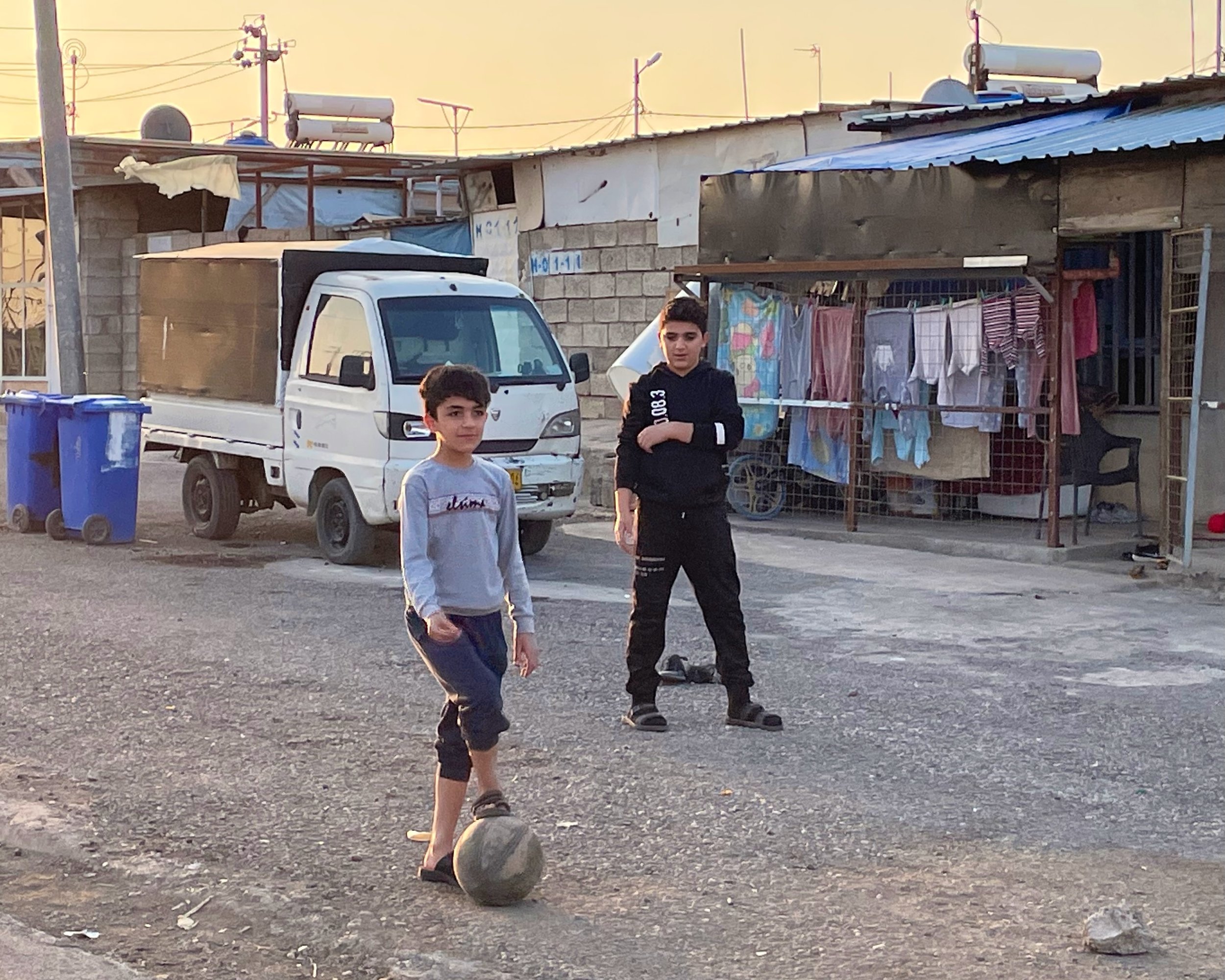The monument to the poet Al-Mutanabbi, who was well known for his sharp intelligence and wittiness. Among the topics he discussed were courage, the philosophy of life, and the description of battles. On Mutanabbi Street in Baghdad.
ABOUT IRAQ + Northern IRAQ (KURDISTAN)
Twenty years after the beginning of the Iraq war, Baghdad remains an avant-garde architectural capital — albeit a bit of a dusty one — with home to such sites as the Walter Gropius-designed University of Baghdad; the Central Bank of Iraq, whose finishing touches are being added by Zaha Hadid architects; and the remaining structures of Iraqi Brutalist, Rifat Chadirji. Despite the administration of U.S. President Donald Trump’s cut to international aid, virtually ensuring the closure of the United Nations as well as several embassies in the Green Zone, Baghdad has embarked on an unprecedented new building campaign, with the skeletons of housing, government headquarters, sports facilities and foreign hotels funded by Saudi and Emirati money dominating both banks for the Tigris river. A walk (sans fixer, bodyguard or interpreter) through central Baghdad follows a path of ancient stories and modern headlines — of war and despair, of razing and rebuilding, of tyranny and attempted democracy. Some streets are newly paved, while others remain gravel pits; every third storefront sidewalk is newly marbled and washed, while rubbish piles up and street animals gather for leftovers along dirt sites ripe for renovation. Statues of famed despots and Islamic holy men line most squares and memorials to fallen heroes, including Qasem Soleimani, the major general and head of the elite Iranian Al-Quds Brigade, who was killed by an American drone strike ordered by Trump in January 2020 near Baghdad International Airport. (Soleimani was a Shia Muslim in this Shia majority city.)
But many artisans and architects believed — and still believe — in the Biblical place now puzzlingly considered an Islamic backwater by Western civilization.
The town square near the ancient citadel of Erbil, Iraq.
The main street of Choman in the Zagros Mountains, one of the last towns before the Iranian border. A trail from Erbil to Choman was recently built by local guides.
Northern IRAQ (KURDISTAN)
Northern Iraq is a semi-autonomous region of 3.5 million people mostly Kurds, as well as Christians (Assyrians and Chaldeans), Turkmen and Arabs. These people from different ethnic backgrounds live peacefully alongside each other in the same towns and cities. Many, especially the Kurds, were brutally suppressed by former president Saddam Hussein. The establishment of the Kurdistan Region dates back to the March 1970 autonomy agreement between the Kurdish opposition and the Iraqi government after years of heavy fighting. However, during the 1991 uprising of Kurds in the north and Shia Arabs in the south against Saddam Hussein, Iraqi Kurdistan's military forces (the Peshmerga) succeeded in pushing out the main Iraqi forces from the north and created the basis for Kurdish self-rule. Kurdistan was once again plunged into violence in 2014 with the spread of ISIS in the region. The Peshmerga forces defeated ISIS in 2017 and retook the Kurdish cities they occupied. At present, the situation has stabilized and Erbil, and the areas north of it, are safe or tourists.
A group of Syrian refugees in the Darashakran Camp get ready to play a game of football.
Youth in Iraq and Northern Iraq (Kurdistan) love sport, especially football, even though many don't have access to proper facilities or equipment. Most play football on bare patches of dirt. Very few schools have pitches, let alone gyms, tennis courts or sports equipment. The Darakshakran + Hassan Sham Run + Ski Clubs and the Iraqi/Kurd Tennis Team takes girls and boys out of the refugee camps or their poor neighborhoods where they spend most of their days for competition and tournaments. These clubs aim to help girls and boys improve their fitness, learn dedication and discipline and provide them with alternatives to jihadist groups or other destructive forces. They support athletes who want travel abroad to an academy, potentially play at U.S. universities or join the international tour through money and the supply of equipment.
A ski excursion to the Zagros mountains outside Choman, Iraq, near the Iranian border.






